Boron Deficiency In Cannabis Plants
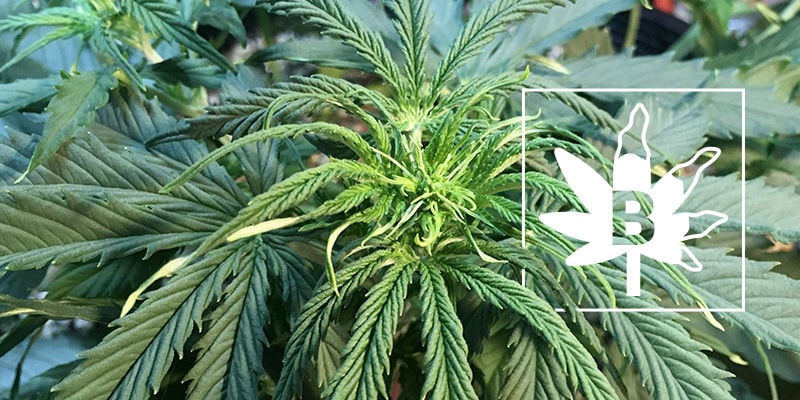
Boron is a micronutrient that plays a key role in the formation and maintenance of cell walls and other biological membranes, as well as the movement of nutrients. While cannabis plants require only small amounts of boron, a deficiency can greatly impact their health and development. Keep reading to learn how to identify, treat, and prevent boron deficiency.
What causes boron deficiency?
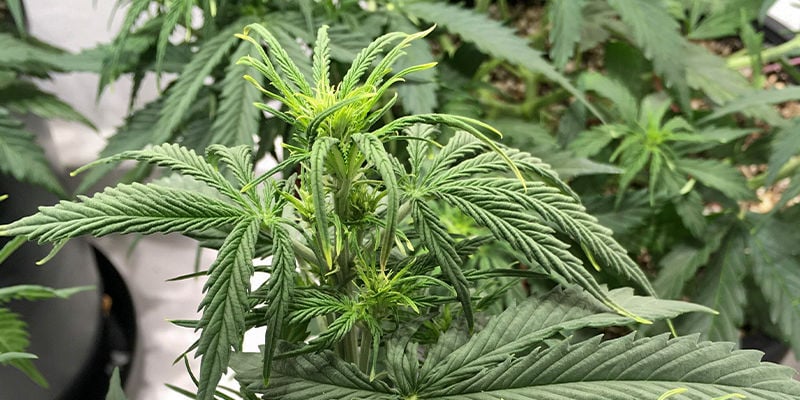
Boron deficiencies are usually caused by poor soil conditions. When the conditions of your soil deteriorate, plants struggle to properly absorb nutrients and water through their roots. Some aspects of soil quality that can affect cannabis' ability to absorb boron include:
❌ Root zone temperature: Cannabis roots function best at temperatures of 15–30°C, with some growers arguing that 24°C is the sweet spot. If root zone temperatures fall outside of this range, your plants will struggle to uptake water and nutrients, including boron.
❌ Soil humidity: Bone-dry or waterlogged soils are detrimental to the health of plant roots. Remember to water your plants regularly, but also give their soil time to dry out between waterings.
❌ Soil structure: Cannabis grows best in well-draining soil rich in organic matter. Light, aerated soils promote healthy root growth as well as good drainage, while heavy, tightly packed soils retain more moisture and make it difficult for roots to grow and expand.
❌ Soil pH: pH is crucial to the health and growth of cannabis. It directly affects the availability of soil nutrients, which is why it is so important to regularly check the pH of your soil, water, and fertiliser. Keep your plants growing in a healthy pH range of 6–7.
If the conditions of your soil are on point, a boron deficiency may be due to inadequate levels of the nutrient in your fetiliser. Note, however, that this is uncommon, as most standard soils and fertilisers should contain small but adequate amounts of boron.
How to recognise boron deficiency
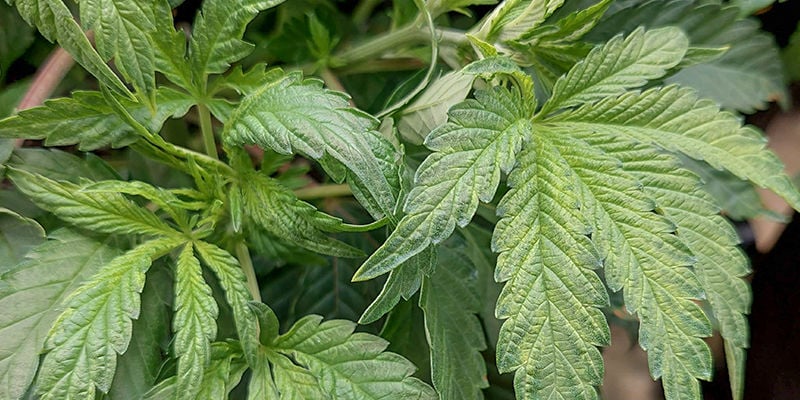
Properly identifying nutrient deficiencies can be tricky, as different deficiencies can produce pretty similar symptoms. That said, boron deficiency does produce a few telltale symptoms that can help you distinguish it from other nutrient deficiencies.
Boron is an immobile micronutrient, meaning it cannot be transported around inside a plant once it has been absorbed. Since boron is crucial for the development of new cell structures, deficiencies typically affect new foliage (particularly new leaves and the growing tips of the plant) and roots.
Some signs of boron deficiency in cannabis plants include:
- Abnormally thick new growth
- Yellow or brown spots/discolouration on new leaves
- Brittle new leaves/branches
- Stunted growth at the tip of a plant, and bushier lateral growth
- Short, stubby root growth
How to prevent boron deficiency
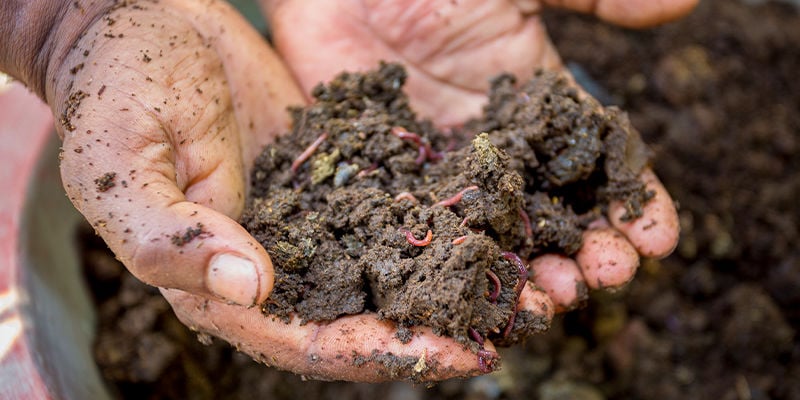
The best way to prevent a boron deficiency involves a twofold approach. First and foremost, you'll want to ensure that you're properly caring for your soil and thereby creating a healthy environment in which the roots of your plants can thrive. In order to care for your plants' soil, you'll want to:
-
Start with high-quality soil. Either buy a high-quality soil mix from your local garden centre, or (our personal favourite) create your own super soil.
-
Encourage the growth of a healthy microbial ecosystem. You can do this by using organic fertilisers (more info below) or with supplements like Rhizobacter and Easy Roots Mycorrhiza Mix. Both products contain ingredients that promote the growth of beneficial bacteria and fungi in the soil.
-
Keep soil temperatures optimal (within the suggested 15–30°C range).
-
Avoid over or under-watering.
-
Regularly check the pH of your soil, water, and nutrient solution. Boron is most available for absorption at a pH of around 5.5–7.
Next in your approach to preventing boron deficiencies is using high-quality fertilisers and supplements that not only contain all the nutrients your plants need, but also enhance the overall health of your soil.
Our favourite way to do this is to use organic nutrients and supplements like worm castings, fish and bone meals, wood ash, guano, bokashi extracts, molasses, and more. Not only do these nutrients make it almost impossible to overfeed and burn your plants (organic fertilisers are slow-release and not instantly available to your plants), but they also encourage the growth of beneficial bacteria and fungi that prevent pests, regulate pH, and promote general soil health.
How to treat boron deficiency
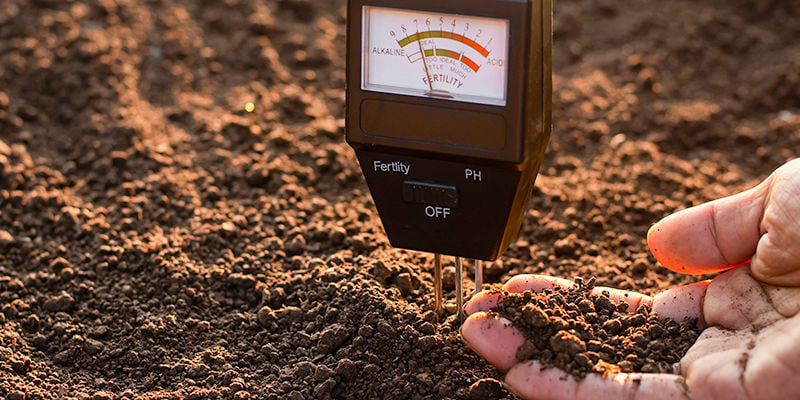
Remember that preventing boron deficiency is much preferable to treating it. While most plants recover from the stress/damage of a deficiency, the time it takes to identify and correct this issue can delay your harvest date or affect the size/quality of your yield (if you aren't able to compensate for the stress with an extended veg time, such as when growing autos).
To treat a boron deficiency, you'll want to:
-
Properly diagnose the deficiency first. Study the description and pictures detailed above to ensure that a lack of boron is really what's affecting your plants.
-
Identify the root cause. Take the time to assess the quality/health of your soil and identify what is causing the deficiency. If it's not a soil-related issue, check to see whether your use of fertilisers/grow supplements is causing the problem.
-
Employ measures to address the root cause of the deficiency. In most cases of boron deficiency (and nutrient deficiencies in general), pH is the underlying issue. To correct the pH, you'll want to first use a pH test kit to see what is causing the pH imbalance, before using pH up/down products to correct it.
Note: If improper pH isn't causing the deficiency, make sure to check on the temperature, humidity, and structure of your soil, and correct any inconsistencies.
Boron deficiency in cannabis — Defence is your best offence
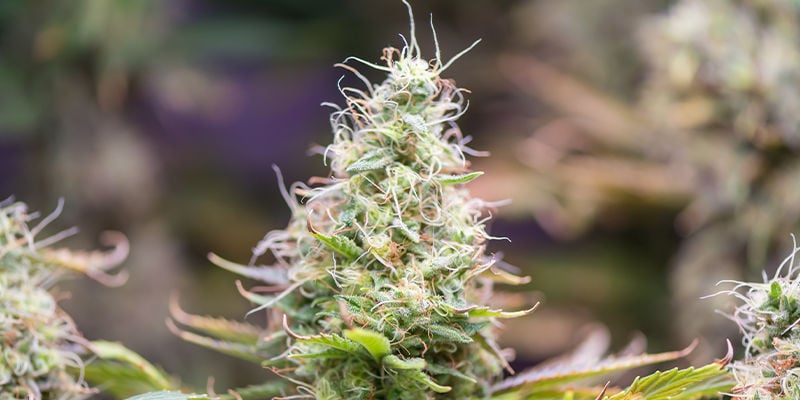
As with all nutrient deficiencies, the best offence against a boron deficiency is a solid defence (i.e. the preventative measures we listed above). Remember that boron is a vital nutrient; even though cannabis only needs small amounts of it to grow properly, deficiencies can greatly affect the health, growth, and yield of your plants if not detected and treated accordingly.












 United States
United States








